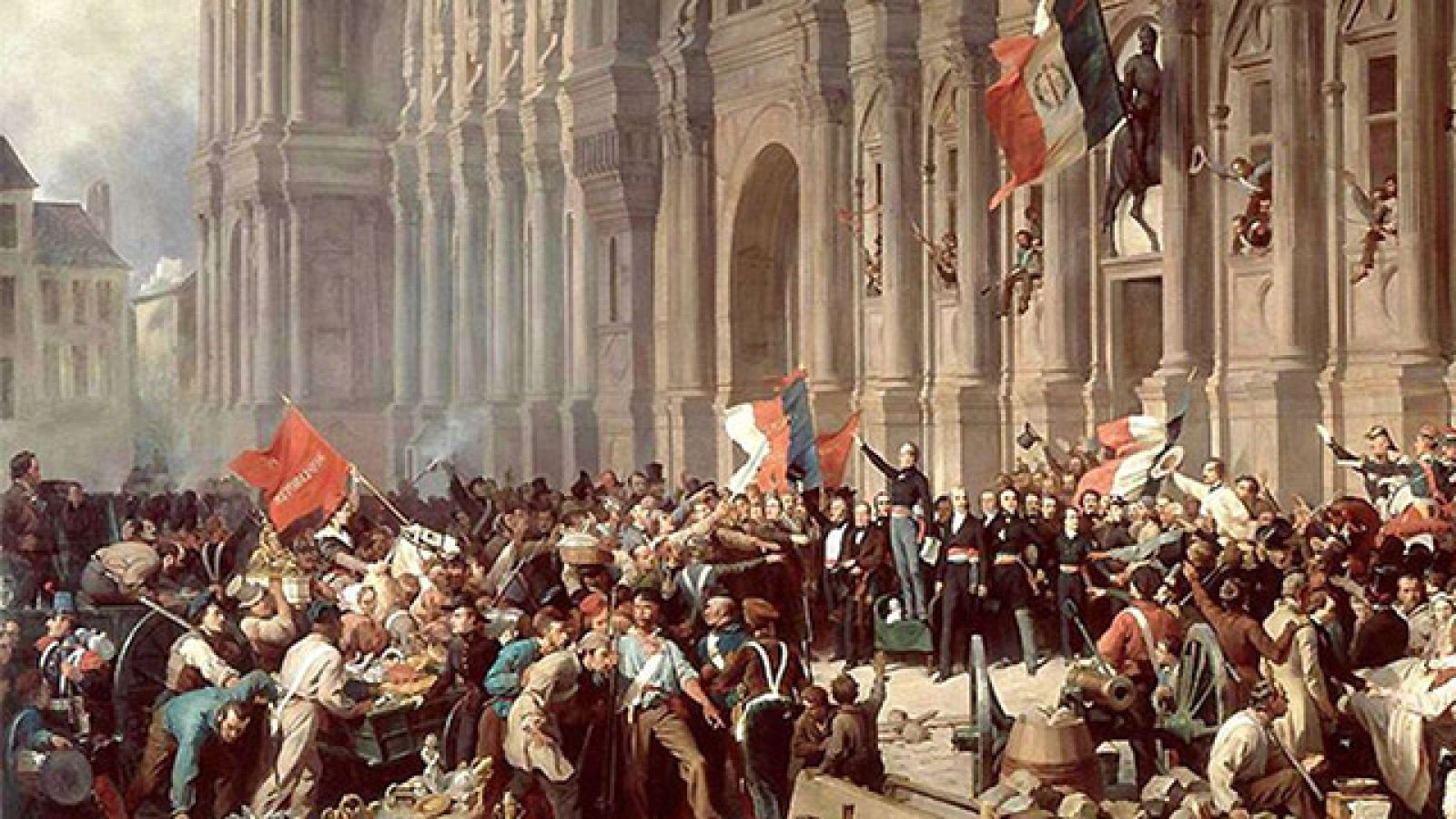Age of Anxiety: authorship and authority in 18th century France

Painting by Henri Félix Emmanuel Philippoteaux.
It is a notion universally acknowledged that the modern author was born in the 19th century. The convergence of the rotary printing press, an upsurge in copyright law, and the unionisation of writers all resulted in the profession of being an author that we know today.
ANU Digital Humanities senior lecturer Dr Glenn Roe recognises the impact of these events. But in his latest research project, funded by a grant from the Australian Research Council, he seeks to give the 18th century its due as the period when many of our current authorship practices arose.
“You get this notion of the modern author that’s very much a 19th century thing,” Dr Roe says. “But what I’m saying is that the 18th century, rather than overlooking it as being too far in the past or as already adopting the 19th century model, is something peculiar to itself. So I want to examine what it is and what it means to be an author in the 18th century.”
An expert on French literature, Dr Roe will examine ideas of authorship and authority primarily through three key Enlightenment authors: Voltaire, Rousseau and Diderot.
Anonymity and pseudonymity, collaboration and compilation, citation and non-citation were practices employed by these authors as a means of undermining the authorities of the day, the Church and the State, and establishing their own authority.
Undermining authority was dangerous work, and all three writers suffered the consequences. This forced them to be creative about how they disseminated their ideas.
Voltaire was imprisoned and his first major works were banned and burned, Dr Roe says.
“He was constantly aware of the threat of being thrown back into prison. He’s thus trying to find ways to get forward his message, which was about undermining superstition and organised religion without getting into trouble.”
Dr Roe adds: “Voltaire doesn’t really have any notion that he owns his own work. So he publishes anonymously, under false names, he publishes wherever he can, away from censorship.”
At the opposite end of the author spectrum was Jean-Jacques Rousseau.
“There is this notion that Rousseau is the most prototypical of the three in terms of our modern vision of authorship,” Dr Roe says. “He’s obsessed with the notion of authenticity so signs everything and gets into all sorts of trouble, and he’s sort of miserable his whole life.
Then there’s the philosopher Denis Diderot.
“Diderot functions somewhere in between the two authors but in really interesting ways,” Roe explains.
“For instance, he collaborates on works but doesn’t sign his name.”
An example of this was Histoire des deux Indes (The Philosophical History of the Two Indias).
“It’s anti-colonial, anti-slavery, anti-religious. It’s materialistic. It’s all these things that would’ve gotten him thrown into jail or in trouble with the religious authorities.”
For these reasons, Diderot declined to have his name on the title page.
“But in one sense, it’s just the way he functioned,” Dr Roe muses. “He was more interested in getting the ideas out there. And if it was in someone else’s books, he didn’t care. Whereas it’s hard for us to think about that today.”
Part of Dr Roe’s project will involve digitising Histoire des deux Indes. That will let researchers identify what passages Diderot wrote by applying a computer model of Diderot’s authorial fingerprint – doing much of the work currently done by scholars manually.
Dr Roe will also investigate whether Rousseau and Voltaire are rightly considered leading figures of the French Revolution, and whether Diderot was actually more influential.
“If you think about the Revolution, what’s called Radical Enlightenment, which is materialistic, atheistic, and very much geared towards universal rights, rights for women – these were things Voltaire and Rousseau weren’t exactly known for,” Dr Roe says.
“Diderot was very much in that realm. His ideas were circulating to that effect, but without any notion that they were his. So from an impact standpoint, it’s about how Diderot, without any semblances of modern authorship, could in fact be the most influential of these three authors.”